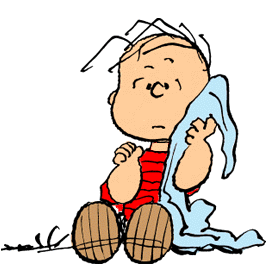Even in forever, it must all end. Fuckin' Potchky, Lucien Carr's dog, had to eat the end of Kerouac's scroll, lost and forever lost, so editor Howard Cunnell was left to sift through all sorts of "On the Road" editions to piece together what might have been, and in so many ways I just wish he would have ended with the words told of the Mexico City ambulances, but more appropriately for Neal Cassady and Jack Kerouac and their beating souls and Neal's concept of time, "and it does not pause for an instant". Been fine like that, though I am not quibbling over the close, it works and is still notable for how the ending was polished by the process of making the book publishable by the standards of non-literate publishinghouses. And in that, the original scroll so legendary of "On the Road" was also ended, died to bring up its child, the "On the Road" so widely hailed, with pseudonyms and non-homosexuality, etc., etc., a version still crazy and stream-of-consciousness a-full, but still toned-down. Now I have read the scroll, beaten back to life to die only at the last word ("instant") transcribed by Mr. Cunnell for the benefit of us all without much of a touch, kept all the same as Kerouac madly typed it in a few weeks in a New York apartment.
Over a hundred pages of introduction precede the unabated scroll, with four "Kerouac scholars" including Howard Cunnell himself delving into different aspects of "On the Road"'s importance. Cunnell's is the only one I shall ever return to because his account of how "On the Road", the popular published version, came to exist in its edited glory, is absolutely fascinating. It makes me want to write a million novels and never seek to publish them, as if I'm keeping the mysteries of life all to myself and true understanding will die when I go limp. I'm glad Kerouac never got to the point, though, because even revised "On the Road" was great, and now the scroll has finally seen the light of day, posthumously, unfortunately for his soul but that's the way even he saw it as happening, and did his old publishers look like fools for how it went down, as he prophecized? To me they did, but this is how legends are made, with rejections and scathing criticisms by editors-not-writers. Legendary works never stay down, so the scroll is now published and all has come to materialize I suppose.
I am not going to hash-out the plot again because the plot hasn't changed. Two fellows, now in their true names of Neal Cassady and Jack Kerouac, are searching for IT, and are using the road to do that. We follow Kerouac in first-person as he meets with Neal, is separated, meets, is separated, and the eventual mass of time they'd spend together going from Frisco to New York to Mexico City, the meat of the book which all leads to and breaks from. Do they ever find what they search for? Does it matter? Perhaps the point to be found is that you can cross America a million times and it will brighten you and pain you and all you search for is not a mystery but is really already found and you just live and live and live and live and go on hiatus forever. I search for no beginning or end in anything, so maybe I'm not like Jack Kerouac, but I have found something otherworldly from his searches, and it makes me thrive as I read the words.
Many say they never do find what they search for, but perhaps in their not finding IT through their journeys, you find IT in yourself as you read, and even more so in the scroll which, even though now published in a hard-bound has no indentations and is truly written in a stream-of-consciousness method, no matter how well its puncutated for something not revised at all. It goes and goes, though not as unconventional as other works (I know from experience "Tristessa" is way more far-out, or "gone" as Jack may describe), but with this method of non-paragraphing, where the books change with just capital letters in the middle of the river of journey saying BOOK ONE or BOOK FOUR, and no arbitrary page breaks and stalls for needless chapter headings, you get the sense that all is connected in Jack's travels and including these several journeys with Neal and others in one book has its purpose, and not only perhaps was this Kerouac's magnum opus, but the whole plot was a climax, his life's climax.
I like that thought. "On the Road" may just be my favorite book ever now, and while I do like the published version, the scroll tickled me these past few days where I read the overwhelming amount of it. In my recent finding that my General Anxiety Disorder may really be Bipolar, or Manic Depression, the mania living inside this book appeals to me, especially since this weekend I have felt heightened. If I can control the "disorder" moodwise, I think I'll find it a blessing, because according to my well-versed psychologist what it does to my brain makes me creative and divergent and more coexisting with what IS in some metaphysical term than most people are probably ever capable of, and I think it, too, brings me closer to "On the Road" and all that we search for.
"The truth of the matter is, you die, all you do is die, and yet you live, yes you live, and that's no Harvard lie.

No comments:
Post a Comment